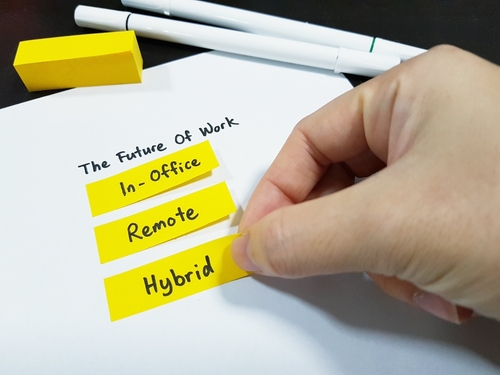For months, business executives have been strategizing ways to convince employees to return to the office. Thwarted by the “Great Resignation” every step of the way, many organizations, including Wall Street powerhouses, hoped to impose Labor Day 2022 as the deadline to force the work-remotely crowd back to their cubicles.
To soften the stick of a mandatory deadline, some companies are also offering job perks as a carrot. A quick Google search of “luring employees back to work” produces no shortage of advice. Some of my favorites include on-site day care, yoga classes and gym memberships, gas cards, and free car washes.
What employee wouldn’t want job perks like that? But it may not be enough.
A Buffer survey found that an astonishing 99% of current remote workers “would like to work remotely, at least some of the time, for the rest of their careers.” The COVID-19 pandemic gave employees a taste of the flexibility that comes with working from home, and it might take more than free car washes to convince them to give that up.
People Are Your Most Important Assets
Good business leaders, however, shouldn’t force their employees to return to in-person work just for the sake of “getting back to normal.” Part of the confusion I’ve seen stems from a failure to treat people as a company’s most important assets. If your employees are speaking with a unified voice (and 99% is about as unified as it gets), your job as an HR professional is to listen.
That starts with the understanding that ultimatums are a bad idea. An ultimatum can force short-term compliance, but it’s a recipe for long-term resentment. Ultimatums inevitably push people away. They’re a power move meant to change behavior, but they do nothing to invest in a company’s culture or human capital.
Instead, behavior change comes through listening and empathy. You may still encourage employees to move in a certain direction, but that direction should be the result of collaboration, not a power imbalance.
Lead by Listening
We’ve found at Talent War Group that conducting an employee pulse survey is a great way to break through these kinds of logjams. These short, frequent surveys are a highly effective way to generate feedback on a specific topic. Employees feel like they have the time to answer two or three questions, which results in quality comments from a high percentage of the company.
There has never been a better time to dialogue with your employees. The pandemic may be in the rearview mirror, but uncertainty is still the word of the day. An employee pulse survey can both resolve any remote work conflicts and communicate to your staff that you care about their future and value their opinion.
When you receive those survey responses, you may find that instead of downsizing your workforce, it’s time to downsize your workplace. An office building is valuable to your company only insofar as it benefits the people who work there. If the cost of the lease is forcing you to make decisions that hurt workplace morale, you have a great opportunity to invest in your people rather than a building.
Work/Life Balance Matters
However you choose to structure your company’s remote work program, valuing work/life balance is essential. Humans are not machines. Even the most dedicated employees must have interests and hobbies outside of work, and offering time for these nonwork activities results in fewer health problems, fewer burnouts, and better engagement.
Showing your employees that you value work/life balance demonstrates that you care about them as people, not just as employees. Your people are your company’s most valuable assets, and people need time to pursue their passions outside of work. If you want to end the Great Resignation at your company, offer real work/life balance with employees in mind.
Ann Mukherjee, chairman and CEO of Pernod Ricard North America, is doing a great job articulating this employee-first mindset. She encourages business leaders to only return to the office “with a purpose.”
Free lunches and yoga classes are great, she told Fox Business, but if employees are being asked to return to the office, they need to believe it “makes sense for their professional and personal growth.”
“It’s a flexible mindset that I call returning to the office with purpose,” she explained.
Rather than thinking about the remote work issue as a dilemma to be solved, think about it as an opportunity to invest in your people. You have a chance to communicate empathetically, build up your employees, and create a culture of work/life balance that benefits the entire company, including the bottom line.
Wall Street’s ultimatum isn’t the future of remote work, but you can build a hybrid system that starts with your employees and, ultimately, leads them to success and fulfillment.
Karli Waldon, a former U.S. Air Force linguist, is the President and Chief Operating Officer of Talent War Group, a management consulting and executive search firm based in Austin, Texas. She has spent the last decade within the HR and talent acquisition spaces designing, building, and executing complex talent retention and development strategies for clients across the globe in multiple industries within corporate and agency settings.

